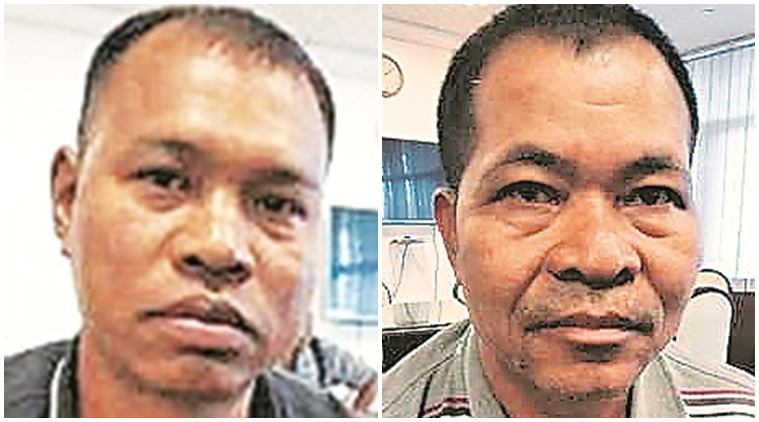 Sawibunga, Bruno Msha
Sawibunga, Bruno Msha
Days after the Centre announced the agreement for repatriation of Bru migrants to Mizoram, the president of Mizoram Bru Displaced People’s Forum (MBDPF) Sawibunga said that the Mizoram government “did not accept political demands such as assembly seat reservation and autonomous council” and alleged that the “names of as many as 50,000 Brus were removed from the state electoral list” by political parties in the state.
A Sawibunga told The Indian Express that the Brus had accepted the agreement — signed with the governments of Mizoram and Tripura — “to conclude more than two-decades-long problem, the central government has repeatedly requested to resolve and make settlement… The contents of the agreement is mainly for resettlement and rehabilitation. No one can say that political demands cannot be raised in the near future…”
Sawibunga, who signed the agreement on behalf of MBDPF, added, “The Mizoram government laid the condition that we will have to drop our political demands, which included creation of autonomous council, assembly seat and job reservations. Presently, we are looking for resettlement, but the state government should realise that the prosperity of Mizoram depends on the development of minorities (Brus).”
The Centre has set a deadline of September 30, 2018, for resettlement of 5,407 families comprising 32,876 people, presently staying in temporary camps in Tripura, to Mizoram.
MBDPF general secretary Bruno Msha, credited the Centre with the resolution. “We have been working for a pragmatic solution with Home Ministry advisor M K Singla. The ministry formed a monitoring committee headed by a joint secretary, which interacted with Brus and other stakeholders,” he said.
In October 1997, around 5,000 families fled the state after ethnic violence in the western part of Mizoram to North Tripura. The families, comprising 30,000 Bru migrants, were given shelter in six relief camps in Kanchanpur and Panisagar subdivisions of North Tripura.
About the Bru demand for cluster housing and fear among Mizos that it may lead to sharing of political power, Sawibunga said, “…The neglect of depressed, oppressed and exploited minorities cannot bear fruitful result for the state of Mizoram. No one (in the state leadership) is willing to upgrade the minorities inside Mizoram and change the face of the state.” He claimed that in 1994, the Mizoram government was responsible for mass deletion of Bru voters. “It is very difficult to restore their names. The number of voters whose names have been deleted from electoral rolls is approximately 50,000,” he said.
“Getting voting rights within the state of Mizoram is difficult. People who have gone there earlier are finding it difficult as their forms have been rejected,” Bruno told The Indian Express.
The first phase of repatriation and resettlement process started in November 2010 during the UPA’s tenure, and about 1,622 Bru families comprising 8,573 people were repatriated and resettled in Mizoram. The process was stalled in 2011, 2012 and 2015 due to protests by Mizo NGOs.